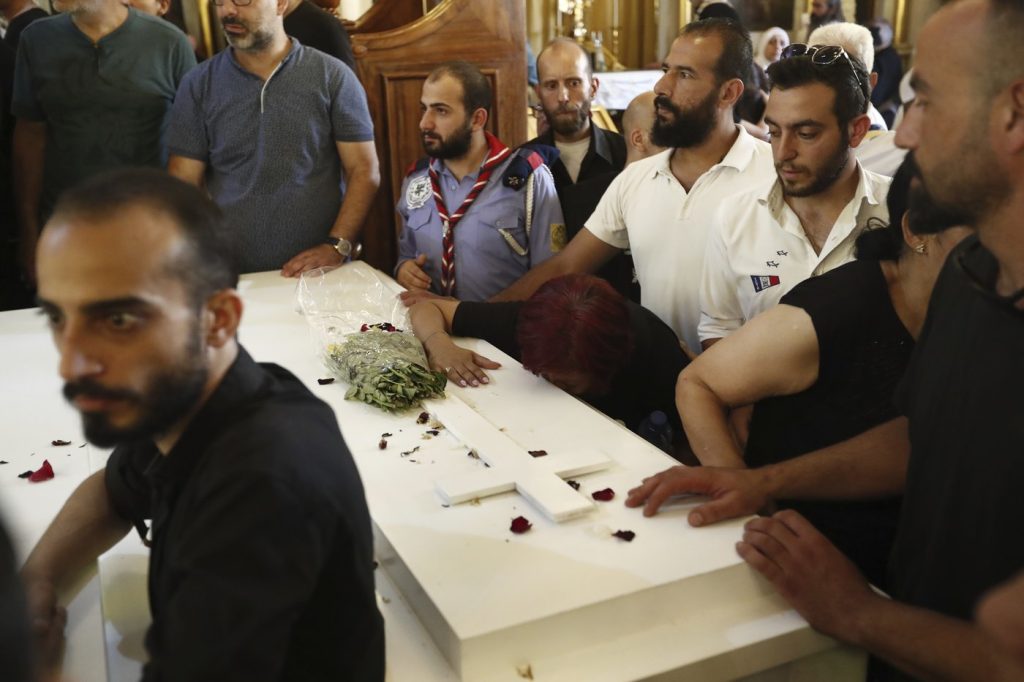DAMASCUS, Syria (AP) - A deadly church bombing that occurred near Damascus has been attributed to a sleeper cell affiliated with the Islamic State (IS), which also had intentions to target a Shiite shrine. The announcement was made by the Interior Ministry spokesperson of Syria on Tuesday.
The attack, which took place on Sunday at the Mar Elias church, resulted in the deaths of at least 25 individuals. This incident marks the first such attack in Syria in years, occurring during a time when the government in Damascus, under de facto Islamist control, is striving to gain the support of minority groups within the country.
Noureddine Al-Baba, the spokesperson, reported that a second attacker was apprehended on Monday while en route to a Shiite shrine located in the Sayyida Zeinab suburb of Damascus, an area known for its significant Shiite religious sites. Furthermore, security forces were able to thwart a third potential attack involving an assailant on a motorbike who intended to target a crowded event in the capital. However, specific details regarding this thwarted operation were not disclosed.
Al-Baba mentioned that security forces conducted raids on IS hideouts, which led to the seizure of weapons and explosives. Through the interrogation of the second attacker, authorities were able to identify the leader of the sleeper cell as Mohammad Abdelillah al-Jumaili, described as an IS leader responsible for recruiting extremists from the Al-Hol camp in northeastern Syria for future attacks.
The Al-Hol camp, which houses a large population of IS militants and their families from across the globe, is currently under the control of the Kurdish-led Syrian Democratic Forces (SDF). The SDF publicly condemned the bombing that took place on Sunday.
Meanwhile, funerals were held for the victims of the church bombing at the Church of the Holy Cross in Damascus. Mourners gathered as church bells rang, and families expressed their grief openly, with men carrying white coffins through crowds of weeping attendees. The clergy referred to the deceased as martyrs, and the atmosphere was marked by both sorrow and solidarity among the attendees.
Dima Beshara, a 40-year-old woman who lost her cousin Emil and seven other family members in the attack, lamented that Syria had long been a bastion of religious coexistence. She emphasized that she had been among many who celebrated the fall of the ousted leader Bashar Assad in December. Reflecting on the tragedy, Beshara questioned the validity of such violence against innocent worshippers, exclaiming, “What did they do wrong? They went to the house of God to pray?”
Expressing her fears, she revealed the anxiety felt by her and her loved ones regarding attending church for various ceremonies. "We love everyone. We don’t have a problem with anyone. But we hope that they love us in return," she said, highlighting the pervasive fear and desire for peace amid the turmoil.
As the community mourns, this tragic event underscores the ongoing challenges faced by minorities in Syria and raises critical questions about security and coexistence in the region.











